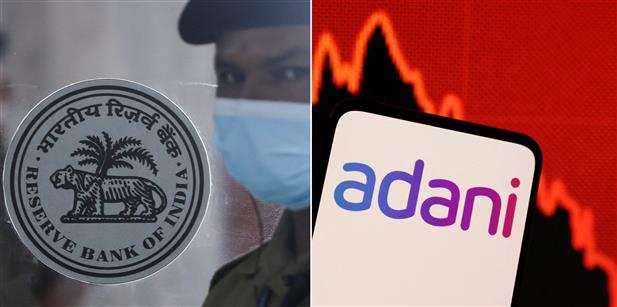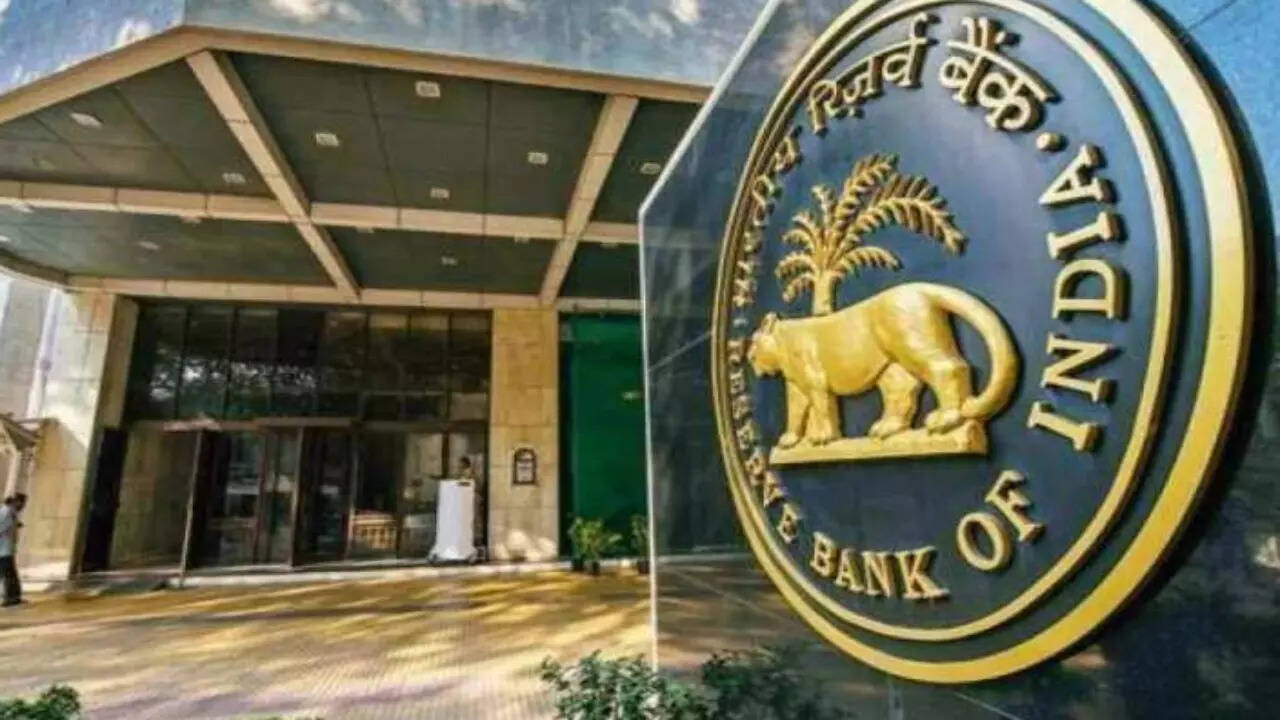RBI asks banks for information on their exposure to Adani businesses.

The Reserve Bank of India (RBI) has asked banks for information regarding their exposure to the company as the market proceeded to punish its equities, with the firm’s flagship Adani Enterprises falling further 26. 50% and its overall market value losing almost $100 billion.
This comes after the follow-on public offer of Rs 20,000 crore was cancelled yesterday night and in the midst of the continued slide in the shares of group companies. An RBI official who was contacted declined to comment on the circumstance.
The wealth division of Citigroup has stopped offering its customers margin loans secured by securities of Adani Group companies as a result of Credit Suisse’s decision to stop accepting bonds issued by Adani Group companies as security for private margin loans. A banking insider claims that this may be what motivated the regulator to step in.
“The Reserve Bank has formally sought information on our fund and non-fund exposures, but they have not officially contacted us (to the Adani Group). Apparently, the finance ministry is also keeping a close eye on it, according to a public-sector bank official. “We have been requested for details on our entire exposures and existing to the Group, bond issue, and asset – backed commercial investments as of end-December 2022 and end-January 2023,” said another banker.
On Thursday, pressure on the shares of Adani Group firms persisted. Adani Enterprises had the largest decline, with shares in Adani Transmission, Adani Green Energy, and Adani Total all falling by 10%, Adani Ports by 6.13%, Adani Power by 5%, and Adani Wilmar by 5% apiece. Ambuja Cements increased by 5.33 %, and ACC increased by 0.05 %. As a result, since the release of the Hindenburg report over a week ago, the market capitalization of Adani firms has decreased by $100 billion (or around Rs 820,000 crore).
The NSE Nifty finished 5.90 points down at 17,610. 40, while the Sensex increased 224 points, or 0.38 percent, to 59,932.24. The combined debt of the Adani group exceeds Rs 2 lakh crore. In a separate report published on Thursday, Bloomberg stated that Citigroup Inc.’s wealth arm had stopped accepting securities from Adani Group companies as collateral for margin loans. Earlier on Wednesday, the wealth arm had said that Credit Suisse Group AG has ceased to accept bonds from Adani Group entities as collateral.
Sources said that although the State Bank of India (SBI) has not yet made an official disclosure of its exposure, it may exceed Rs 21,000 crore. According to Punjab National Bank (PNB), its 7,000 crore rupees in total exposure to the Adani Group is supported by sufficient cash flows, and there is no immediate concern about repayments. A K Goel, the bank’s managing director and CEO, asserts that the company has exposure to funds totaling Rs 6,300 crore and non-fund exposure to other firms within the Group totaling Rs 700 crore.
There is a 4,000 crore rupee exposure for the Bank of Baroda. Other banks have not yet revealed how exposed they are. Debt servicing won’t be a problem because SBI’s exposure to the Adani Group is far below the Large Exposure Framework.
The group’s exposure to the Indian banking system as a percentage of their total debt has declined during the last two to three years, according to Swaminathan J, Managing Director (Corporate Banking & Subsidiaries), SBI. Due to improvements in the company’s debt to EBITDA (earnings before interest, taxes, depreciation, and amortisation) ratio over the same time period, the group has been able to comfortably service its debt.
According to what is known, the majority of their purchases have been funded by foreign borrowings and market instruments; therefore there hasn’t been any exposure to the Indian banking sector on this count, based on Swaminathan. According to a report by financial firm CLSA, the top five Adani group companies—Adani Enterprises, Adani Ports, Adani Power, Adani Green, and Adani Transmission—have a total debt of Rs 2.1 lakh crore.
The exposure of Indian banks to the entire group debt is less than 40%. The exposure of private banks to this is less than 10% of the overall group debt. As bank debt represents less than 40% of overall group borrowing, the CLSA research calculates that Adani Group’s banking exposure is 0.55 percent of system loans. According to CLSA, the exposure for PSU banks is 0.7% of loans, with numbers for select institutions possibly reaching more than 1% of loans, while the exposure for private banks is 0.3% of loans.
Adani Enterprises Ltd, Adani Ports, Special Economic Zone Ltd, and Ambuja Cements were placed under a short-term additional surveillance measure by the National Stock Exchange (NSE) on Thursday (ASM). This implies that there will be higher trading margins for these companies, meaning that when taking positions, investors will have to put more money down the front. The ASM category’s goal is to caution and warn investors to use extreme caution while transacting in the companies included in the category. The NSE action follows falls of 26.50% and 6.13% for Adani Enterprises and Adani Ports, respectively.
The maximum rate of margin will be capped at 100% starting on February 6, 2023, for all open positions as of February 3, 2023, and for new positions formed starting on February 6, 2023, according to the NSE. The applicable rate of margin will be 50% or the current margin, whichever is higher. Adani Transmission and Adani Green Energy already fall within the ASM category. Despite being in the ASM category, Adani Green Energy had a 10%cline.
SBI loaned Adani Group companies Rs 21,000 crore: report
The largest state lender in the country, State Bank of India, reportedly loaned the Adani Group firms up to Rs 21,000 crore ($2.6 billion), according to a report on Thursday. This is just half of what is permissible, according to the regulations, the person told Bloomberg. According to the report, SBI’s worldwide subsidiaries were responsible for $200 million of its risk. The Adani Group companies are servicing the loans, according to SBI Chairman Dinesh Kumar Khara, who earlier on Thursday said he didn’t expect any “immediate objections” to the bank’s prior lending choices.
A damning analysis by US-based short seller company Hindenburg Research caused the stocks of the Adani Group companies to lose a combined market value of more than $100 billion over the course of the previous week. According to Hindenburg Research, it has short holdings in many Adani Group entities through derivatives traded outside of India and US-listed bonds. Due to their exorbitant values, the seven publicly traded firms in the Adani group have an 85% downside on a fundamental basis, according to Hindenburg.
The entire group is now on shaky financial ground since “key listed Adani firms have also taken on enormous debt, including pledging shares of their inflated stock for loans,” Hindenburg said. According to Reuters, the Reserve Bank of India has requested information from PSU banks on their exposure to the Adani Group of firms earlier on Thursday. According to sources cited by Reuters, the RBI is interested in learning more about the collateral used to support loans as well as any potential indirect exposure banks may have.
edited and proofread by nikita sharma




